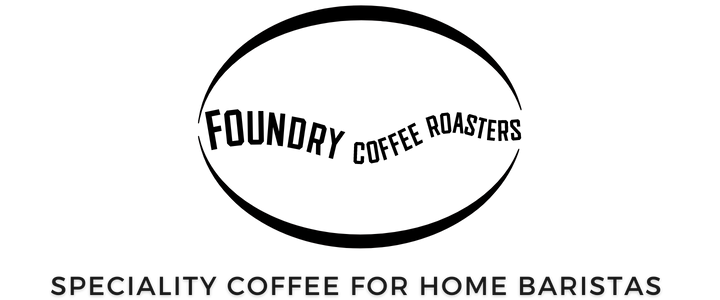-
Buy Coffee
-
Buy Other Stuff
-
Everything Else
ORDERS PLACED NOW WILL BE SHIPPED ON MONDAY 29th DECEMBER - (more info here)
June 30, 2022
It sounds as if it should be fairly simple. I’m not sure exactly how many roasters there are in the UK, but it’s somewhere between 250 and 500. How do you choose between them? If you’re wondering how to buy speciality coffee beans, here are a few things you might want to bear in mind.
You need to know when your coffee was roasted. If you don’t, you could be buying coffee that is a long way from fresh. As a general rule, you want to be getting your coffee about a week after it was roasted. Most coffee is in peak condition around two weeks after roasting, and it will stay fabulous for another four to six weeks after that. At six weeks, you may start to perceive some signs of ageing, but the beans should still be drinkable for another six weeks or so after that.
TLDR? Don’t buy coffee that doesn’t come with a roast date.
You can enjoy whole beans for several weeks after they were roasted, but as soon as you grind them, the staling process starts immediately. We’re talking within hours, if not minutes.
Anyone who sells you ground coffee is sending you stale coffee. The larger companies try to get around this by nitrogen flushing their ground coffee straight after they grind it. This will delay the onset of oxidisation, but as soon as you open the bag, you’re back to needing to consume that whole bag on the same day. The next day, it’s going to taste bad.
TLDR? I'm sorry to break it to you, but you will have to get a grinder if you want to get the best out of your beans.
Okay, our disdain for blending coffee is pretty well known already (read more about that here).
Blends are an abomination (I know, strong). It’s marketing BS that is designed to enable this industry to sell you cheap coffee and make out that it’s somehow perfectly suited to a specific purpose. I mean, it gives the PR department something to sell I guess, but seriously?
Blends are a hangover from the old days of commodity coffee, and it’s just a bit weird that the speciality coffee movement doesn’t seem to want to let them go.
TLDR? - don’t fall for the hype. Reject the generic and rejoice in the glory of single origin coffee!
Linked to freshness, seasonality is one of the things I love the most about speciality coffee. The coffee harvests happen at different times in different parts of the world. It’s the reason that we have like four Colombians right now, and why we’ll have four Guatemalans in a month or so.
Coffee tastes best when the green (raw) beans are fresh. It is commonly quoted that green coffee has a shelf life of up to two years, but we sometimes start to see signs of green coffee ageing after around six months from it arriving in the UK. Roasters need to move fast, the seasons wait for no-one.
Here is an example of a coffee harvest calendar, shared with permission from our good friends at Falcon Coffee.
TLDR? If you’re seeing coffee from Burundi in September, that is probably pretty old coffee.
We all like different things. It’s what makes life exciting. You have to find a roaster that sources the kind of beans that you like, and roasts them in the way that you like them roasted.
This is a difficult one to help you with, you’re probably going to have to kiss a few frogs. I do have a few thoughts, though.
If you like more traditional, darker roast—you should probably look for a roaster that offers ‘espresso roasts’. If you enjoy more bitterness in your brew, this would be a good way to go. We don’t roast like that. (If you’re interested in how we approach things, you can read about that here).
Perhaps the most important thing to look for is consistency. If you find someone you like, and they have consistently high standards, then the chances are that you have found the right roaster for you. Huzzah.
TLDR? Roasters have their ideas about how coffee should be roasted. You just need to find one that fits with your preferences.
I know, it’s one of those buzzwords that gets thrown around a lot these days. Still, there is no getting away from the fact that drinking coffee is not a low-carbon activity. There are roasters out there that acknowledge this and are trying to address these issues.
Gaining carbon-neutral status and using recyclable/compostable packaging are clues that your roaster cares about their impact on the environment.
